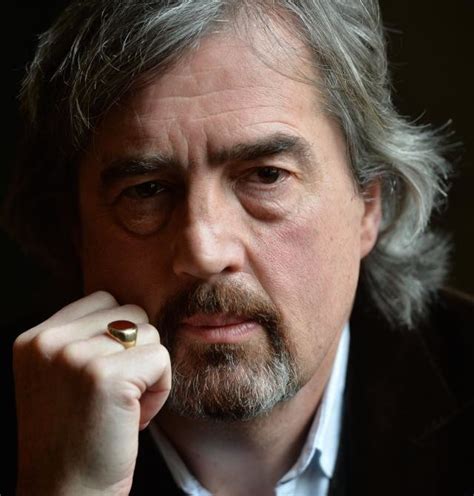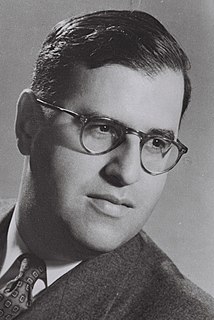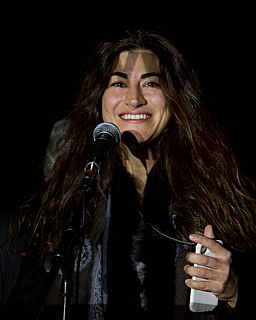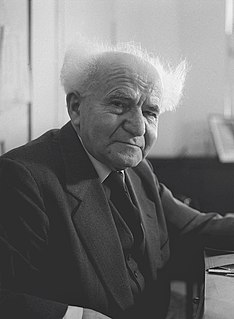Top 80 Cairo Quotes & Sayings - Page 2
Explore popular Cairo quotes.
Last updated on April 15, 2025.
Fred Astaire. Not a handsome man. He said himself he couldn't sing. He was balding his whole life. He danced like a cheetah runs with the grace of the first creation. I mean, that first week. On one of those days God created Fred Astaire. Saturday maybe, since that was the day for the pictures. When you s Fred you felt better about everything. He was a cure. He was bottled in the films and all around the earth, from Castlebar to Cairo, he healed the halt and the blind. That's the gospel truth. St. Fred. Fred the Redeemer.
In Cairo, these young men hanging around in the street, we're told these guys are lazy, they're uneducated, they don't care, they don't have any political instincts - just like the working class in America, apparently - and then suddenly what the hell happened? What was that? They changed the world by changing themselves. Now is that over? No. Is the civil rights movement over? No. These movements have not accomplished what they set out to accomplish.
Our intention to regard the closing of the Straits as a casus belli was communicated...to the foreign ministers of those states which had supported international navigation in the Straits in 1957 and thereafter. There can be no doubt that these warnings reached Cairo. One thing was now clear. If Nasser imposed a blockade, the explosion would ensue not from 'miscalculation', but from an open-eyed and conscious readiness for war.
Many of the enchanted things in the book are lamps, carpets, sofas, gems, brass rings. It is a rather different landscape than the fairy tale landscape of the West. Though we have interiors and palaces, we don't have bustling cities, and there isn't the emphasis on the artisan making things. The ambiance from which they were written was an entirely different one. The Arabian Nights comes out of a huge world of markets and trade. Cairo, Basra, Damascus: trades and skills.
All writing is by the grace of God. People do not deserve to have good writing, they are so pleased with bad. In these sentences that you show me, I can find no beauty, for I see death in every clause and every word. There is a fossil or a mummy character which pervades this book. The best sepulchers, the vastest catacombs, Thebes and Cairo, Pyramids, are sepulchers to me. I like gardens and nurseries. Give me initiative, spermatic, prophesying, man-making words.
In 1491 the Inka ruled the greatest empire on earth. Bigger than Ming Dynasty China, bigger than Ivan the Great’s expanding Russia, bigger than Songhay in the Sahel or powerful Great Zimbabwe in the West Africa tablelands, bigger than the cresting Ottoman Empire, bigger than the Triple Alliance (as the Aztec empire is more precisely known), bigger by far than any European state, the Inka dominion extended over a staggering thirty-two degrees of latitude—as if a single power held sway from St. Petersburg to Cairo.
But strangely, [in] the original Matt Helm books, he's just this super hardass assassin. They sort of made it into a sexy romp for the movies. The books are very, very dark. I also watched 'OSS 117: Cairo, Nest Of Spies,' which is a French film. They just made a second one, I think, which is based on like, 100 novels. They're just fantastic. They're set in the '60s. A lot of the visual inspiration definitely came from 1960 James Bond movies and 'OSS 177' and also 'Pink Panther' movies.
Sometimes when she is able to spend the night with him they are wakened by the three minarets of the city beginning their prayers before dawn. He walks with her through the indigo markets that lie between South Cairo and her home. The beautiful songs of faith enter the air like arrows, one minaret answering another, as if passing on a rumor of the two of them as they walk through the cold morning air, the smell of charcoal and hemp already making the air profound. Sinners in a holy city.
For Beirut it was the civil war, and the dividing of the city - which is something that is shared among Beirut, Berlin and Baghdad. And Cairo is a city that has a scar that was born after many decades of dictatorship - oppression shaped the people's lives, and forced people to grow up accompanied by fear. I belong to a generation that, whether we like it or not, was shaped by this fear of death or loosing the people you love, the threat of war, not allowed to be yourself, forced to be silent - as you watch ignorance occupying everything around you. And this is a deep scar.
I think as much as the city is changing us, our experience inside the city also changes. I think, a city like Cairo - and it's interesting because yesterday, a friend of mine told me the same this thing about New York - is a city that you can't control. It's very bold and very aggressive, and it will constantly resist any attempt at control. But even though you can't control it, you can find your path within the city. You can come to a better understanding of your relationship with it.
The other thing that troubled me: Dad was clutching his workbag. Usually when he does that, it means we're in danger. Like the time gunmen stormed into our hotel in Cairo. I heard shots coming from the lobby and ran downstairs to check on my dad. By the time I got there, he was just calmly zipping up his workbag while three unconscious gunmen hung by their feet from the chandelier, their robes falling over their heads so you could see their boxer shorts. Dad claimed not to have witnessed anything, and in the end the police blamed a freak chandelier malfunction.
I don't know of a single instance of these Arab freedom fighters holding up pictures of bin Laden. I know many instances of them displaying American flags in Benghazi or painting 'Facebook' on their foreheads in Cairo. The idea of freedom . . . is absolutely contradictory to what bin Laden stood for, which was . . . taking Muslims back to some medieval theocracy and encouraging people to die not for freedom but to go to paradise and to kill innocent people along the way. The contrast is really striking.
If you just look at the fact that a woman was central in twittering the Cairo revolution, and women were central to the Tunisian uprising. Women are at the center of everything right now and moving everything forward. And I do think in the next year or two, we are going to see such a woman spring, such a rising.
I used to do volunteer work in poor areas of Cairo, and people would gather their money together to get a satellite dish. You'd see them huddling around and for the first time seeing issues being debated on TV that had never been talked about before. And that is the biggest promoter of democracy you could possibly have.
At the beginning, I thought the best Islamic work was in Spain - the mosque in Cordoba, the Alhambra in Granada. But as I learned more, my ideas shifted. I traveled to Egypt, and to the Middle East many times.I found the most wonderful examples of Islamic work in Cairo, it turns out. I'd visited mosques there before, but I didn't see them with the same eye as I did this time. They truly said something to me about Islamic architecture.
A Christian state should be established [in Lebanon], with its southern border on the Litani river. We will make an alliance with it. When we smash the Arab Legion's strength and bomb Amman, we will eliminate Transjordan too, and then Syria will fall. If Egypt still dares to fight on, we shall bomb Port Said, Alexandria and Cairo.
I wish I could attribute the absence of any conventional Arab offensive in the last 20 years to a change of political climate or a willingness to abide by past accords. But unfortunately it is more likely that the Egyptians or Syrians concluded that the next time their tanks headed to Tel Aviv, there was nothing stopping the counterassaults from ending up in downtown Cairo or Damascus.
Downtown Cairo is at the center of the city, it is a place that has to be shared between different classes. It's a place where you see the bigger picture of the city's social fabric. It's also a place where you see all the contradictions of having all these layers, classes, and differences at the same time. And this is also where they clash, and where they negotiate. They negotiate their demands, their tastes, the lifestyles they want to have. So it's a very interesting space. I think that Downtown has maintained that identity before, during, and after the revolution.

















